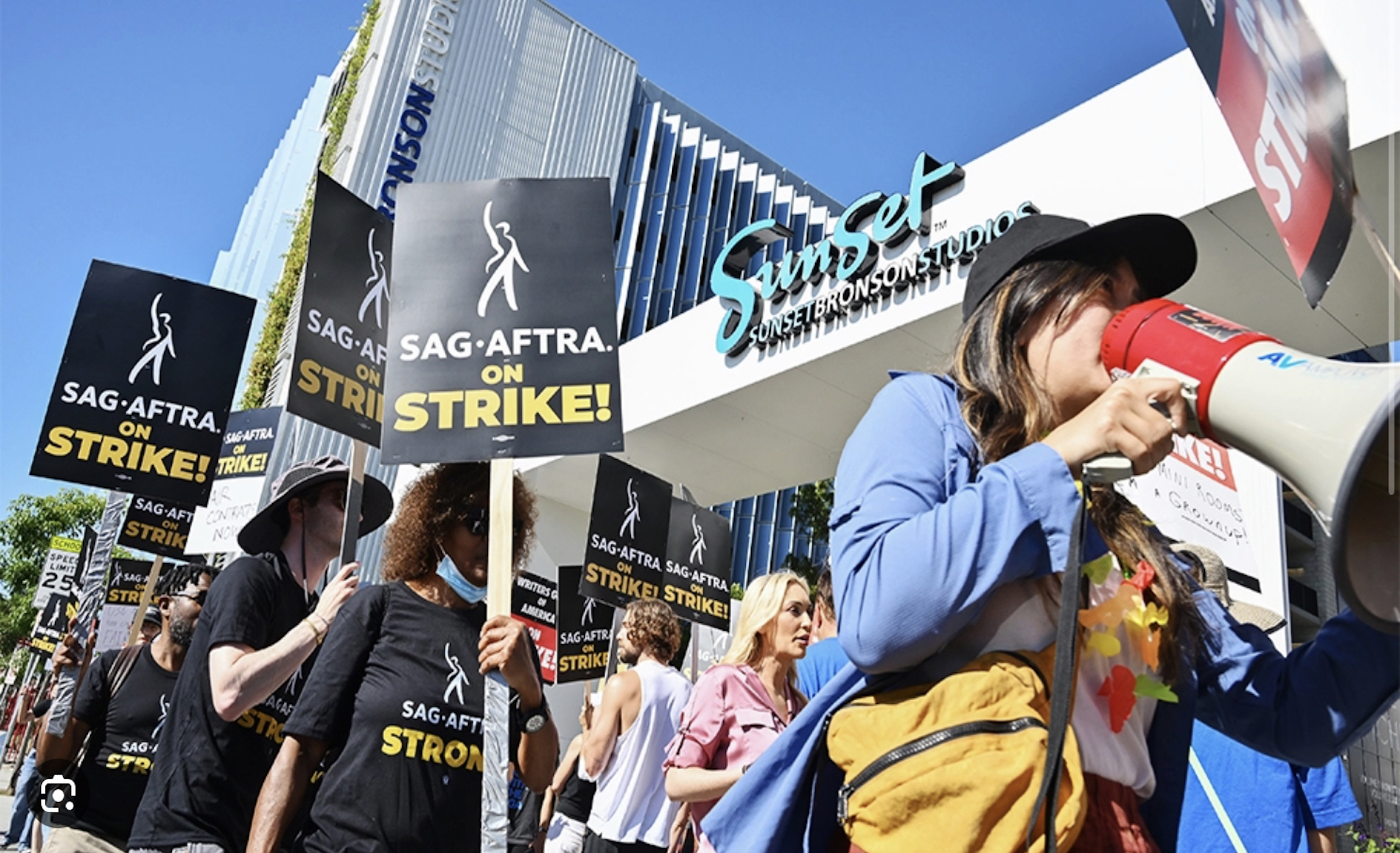The last time SAG-AFTRA and the WGA collectively went on strike was in 1960, and…
#MeToo: A Q&A on Women in Leadership with Curmudgeon Group Founder Josie Davis
At a time when the Twitter hashtag #metoo has officially become a thing — and hopes for serious change along with it — we thought it was time to ask our own Josie Elizabeth Davis, Curmudgeon Group’s founder and Chief Creative Officer, for her take on being an entrepreneur/woman/risk-taker/go-getter at the frontlines of experiential marketing, creative production, PR and advertising.

Passing along experiences and learning from one another matters. Women continue to dominate PR, for instance, yet are still vastly outnumbered by men when it comes to running agencies and making the most money in the field. And check this out: the total number of women who have led the Public Relations Society of America is 13 — in 69 years. Seven of those in the past 15 years. Those kinds of statistics can be found across the board, from broadcast media to tech, even though a growing number of women entrepreneurs often are more ambitious and outperform men.
What’s it going to take for women to assume their rightful positions at the helm of industry — and is it optimistic to think they won’t have to deal with sexual harassment and abuse on the way there? Just imagine.
Josie, what does being a female business owner mean to you? What led you to start your own creative agency in Chicago?
I am proud of my work and often think that my biggest challenge is that of being a solo entrepreneur, rather than that of a woman. That said, I try to mentor and share my experiences with the women around me. I am conscious of whom I hire and how I create an atmosphere of diversity where women and minorities feel supported. I launched Curmudgeon Group with a desire to create a life doing what I love while mentoring others and having an impact on the world.
What were the biggest initial hurdles to building your business and how did you overcome them?
Coming from a different industry, I had little knowledge of what it meant to work in PR and advertising. Building a production and experiential marketing business in a new city was another challenge, but it gave me a reason to build a personal and professional network. Another hurdle is that I identified as an artist and teacher, and at first the idea of working in advertising meant “selling out.” It was difficult to bridge this divide, but I found that I am as passionate about strategy and communications as I am about producing creative work, and that my background in the public and performing arts gives me a unique competitive edge. I learned how to describe my business to others in ways that felt authentic, even if that meant walking into initial networking events and meetings with note cards or notes on my phone.
What do you think is the most significant barrier to female leadership?
It’s hard to put a finger on just one barrier. It’s a highly subjective issue. But if I had to choose, it would be the perception that women are more emotional, reactive, and sensitive, and that these qualities represent weaknesses and run counter to leadership. I actually consider these traits to be important soft skills that contribute empathy and humanity to the workplace. Leadership roles set the standard for companies, and both hard and soft skills trickle all the way down the ladder so they count for a lot. Chiding women for speaking out, for being empathetic to their colleagues or for having children forces women to alter their sense of self. That’s the ultimate barrier: The lack of support for women for who they are.
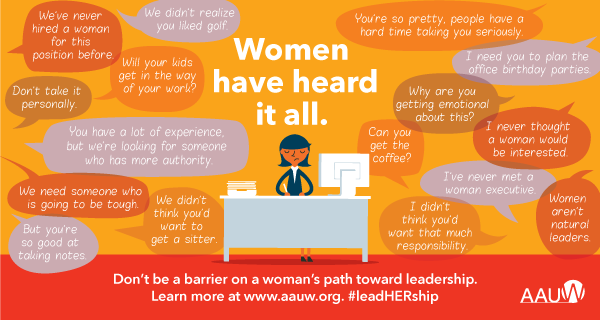
Are there specific advantages and disadvantages to being a creative agency owner who is a woman?
In my experience, negotiations are one of the most difficult areas to navigate. As women, we are taught to please others, to be less assertive. The result is that we often assume that all the cards are on the table when they are not; when we recognize the need to counter an offer, we are uncomfortable with negotiation and confrontation. As a woman business owner, you are forced to reconcile this or else you are stuck in a losing battle. One advantage, however, is that people are often very admiring and excited to work with us when they find out the creative agency owner is a woman. Companies and brands, especially with executives who are women, see value in working with women-owned agencies because it immediately diversifies their agency record and provides necessary insights that more traditional agencies often cannot provide.
What is important to you as a woman in a work environment?
Respect. Independence. Trust. Boundaries. Equal pay. Diversity, especially in leadership. Leaders who walk the walk, and don’t just talk the talk — inviting you to participate, to engage, to speak up, without having to say it to you directly. Leaders who recognize individual value, regardless of gender. Environments where inappropriate behavior is not tolerated, and policies are transparent and where you aren’t afraid to speak out if something feels amiss or if you are harassed. Female mentorship programs, paid maternity and paternity leave, health care, and child care.
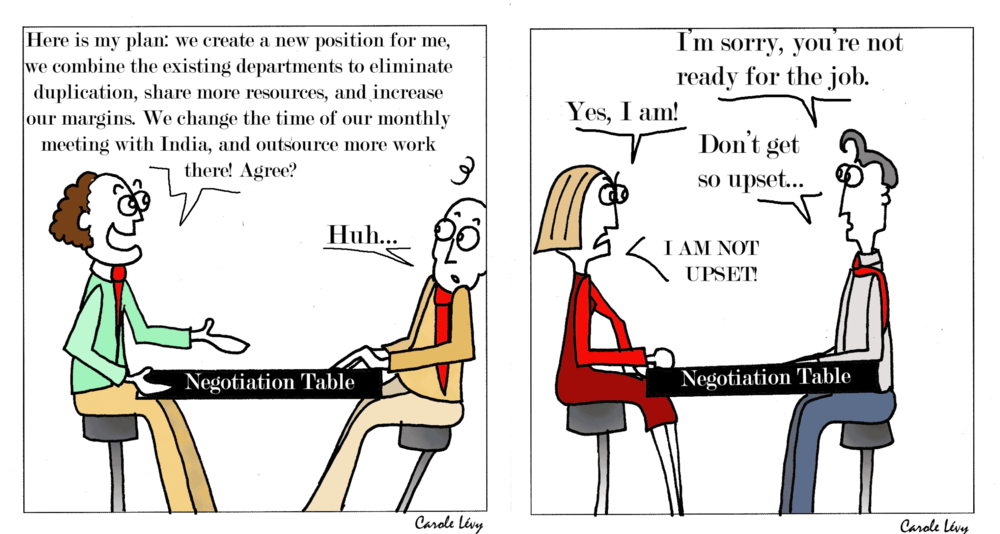
What or who has been your greatest influence in business and why?
My mother and father. They are each strong, successful people who had independent careers and mutually supported one another along the way. Their advice and input continues to be invaluable to me. Beyond them, I look to everyone from other women who work in production or experiential marketing to artists at the Whitney to industry executives. I also listen to the Ted Radio Hour and read the New Yorker, and I always am inspired by people willing to take big creative and business risks. Their stories of success and failure are reminders that we all encounter many of the same obstacles, and persistence pays off.
Do you have mentors — male and/or female — and/or a female support network? How did you develop it, and is a female network important, and why?

Being a solo entrepreneur is difficult because you spend a lot of your time working alone. You don’t have the built-in camaraderie of larger workspaces. Much of my support network is comprised of women from around the country, working in a variety of environments and industries from policy and conservation to design, technology, the arts, marketing, and education. They are the people with whom I slowly developed relationships over time and can speak openly and candidly about any issue. Meeting them has been the easy part; maintaining relationships and cultivating trust is more difficult yet invaluable. I also surround myself with advisors, many of whom are men, largely because they happen to be in more established leadership positions. That’s just a fact. Mentorship and networks — with both men and women — is a hard thing to find, and it takes commitment from both sides.
What book would you recommend that every female entrepreneur read?
I always recommend The 7 Habits of Highly Effective People by Stephen Covey as a timeless classic. Apart from that, I believe that every entrepreneur — regardless of gender — should develop personal sources of leadership advice across a range of industries and generations. Even a brief conversation with one of my advisors or colleagues is invaluable when I’m making snap decisions.
What was the best piece of advice you ever got as a woman in the workplace? The worst?
The best advice I ever got was, “Let go and move on.” If something or someone is unhealthy and toxic, it’s okay to walk away and refocus your energy elsewhere. That can be hard when you are just starting out and every opportunity matters. But it’s necessary. The worst advice was and remains, “That’s just the way men are/he is.”
What advice would you give to young women who want to succeed in the workplace?
I would encourage any young woman to:
- Call out sexism and harassment when it happens
- Don’t apologize for who you are; it’s what got you this far
- Take risks and learn from your mistakes
- Trust your gut
- It’s okay to be tough and it’s equally okay to show empathy toward others
- Focus on what you feel is best for the job and yourself as a good employee or leader instead of second-guessing what will make someone else happy
- Communicate — always
- Take a class in negotiation; you don’t have to invent the wheel
- Go after what you want
- Surround yourself with a strong female network; identify mentors and advisors for the long-term
- Practice relationship building skills and don’t be afraid to reach out
- Maintain a work-life balance
Richard Edelman, CEO of the eponymous PR agency, recently told women at a PR conference that they should “speak up more” at work. How do you feel about that?
I recently had dinner with a friend who mentioned how frustrated she was when her boss suggested she “speak up more” in the office. She was furious, as were all of us at the table. She began at her company by regularly contributing to meetings as an ambitious, direct, and intelligent woman. What happened? She was invited to fewer and fewer meetings and became reluctant to express her opinion, eventually prompting her boss’ suggestion. The experience is not uncommon — to be pushed out of the inner circle, only to be asked why you are not participating. The blame is in the wrong place. Women are eager to participate, but are often sent the message that the only way to do so is to change their behavior, to speak less and listen more. Women need to hold their ground. Men also need to question their leadership style and reflect on how and why women are staying silent. It’s important for them to consider what they can do to change the environment to make women feel more welcome when it comes to giving 110% and voicing their true opinions and sharing their knowledge and experience.
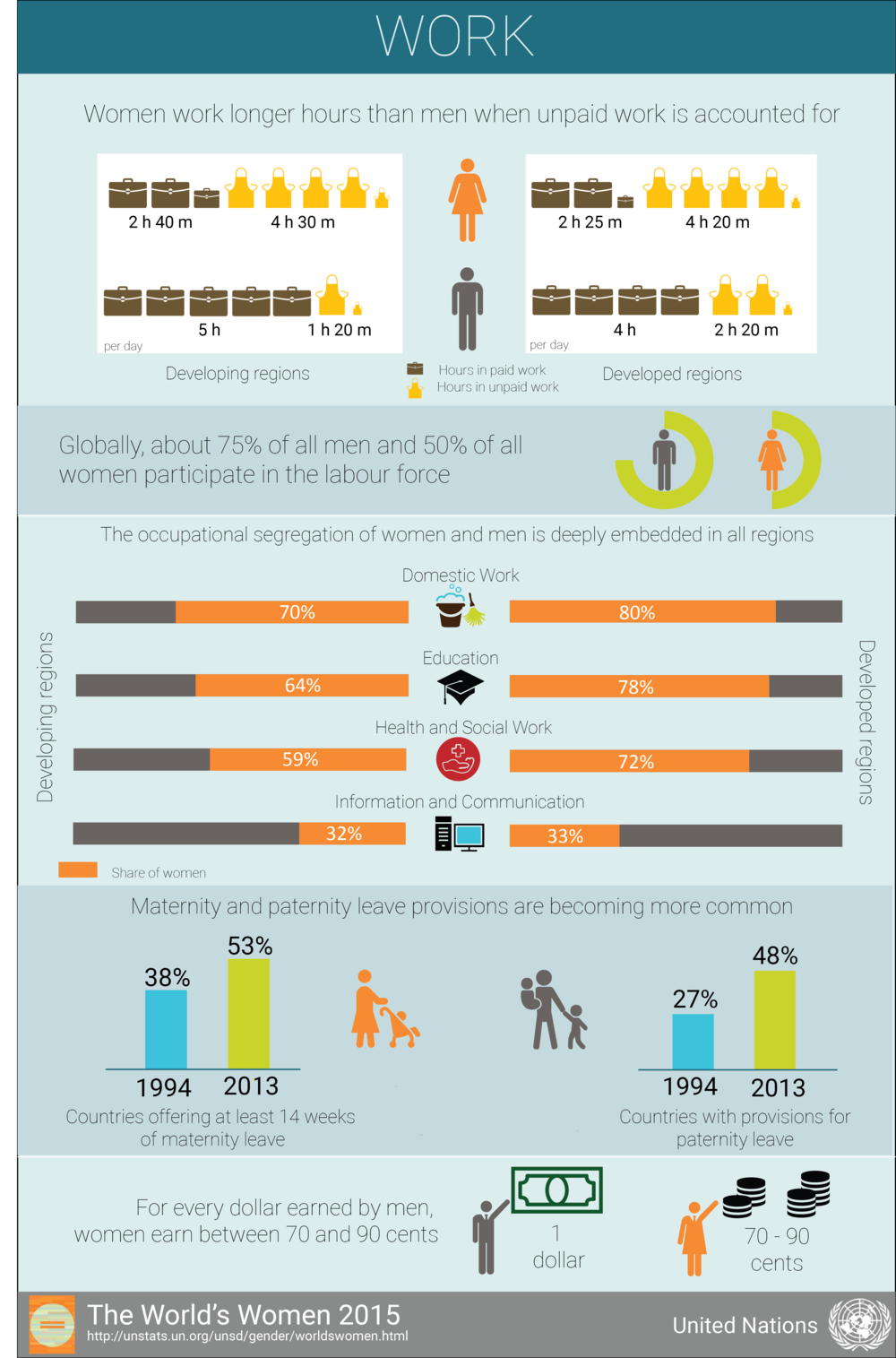
You encounter both blatant and under-the-table sexism on a regular basis as a woman-owned shop and woman in production and advertising. What are the most common types of sexism you encounter?
I was on site during a production, and one of my contractors and I were having a difficult business conversation. When it was over, he gave me a big wink. As a married man with kids, in the context of a negotiation, this simple gesture made me feel dirty and disrespected, as if I’d been ogled over, my position as an executive producer secondary to that of a woman. I’ve encountered everything from that wink to a comment on my looks, along with the (wrong) assumptions that I don’t have the chops to make it as a producer or that I need to flatter men and act “lesser than” to get a meeting or win a bid.
How do you react when you encounter sexism towards you – and also others? Do you speak out? Do you talk to male colleagues about it? What happens? Can you give an example or two?
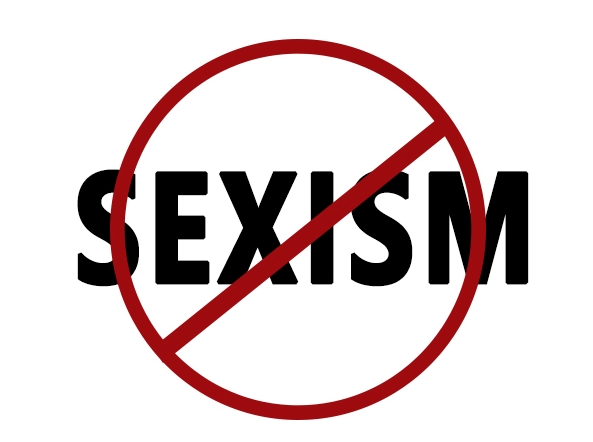
I’ve only spoken out on two occasions, once personal and once professional. On one occasion, I went directly to the person’s superiors and filed a report that led to his dismissal. I was fortunate; that, as we know, is not always the result. In the other case, I discussed the issue with several colleagues but was too focused on work to follow through on a specific action. What upset me about both situations was that the persons involved were so self-assured in their actions. The assumption that what they did was acceptable was just as upsetting as the action itself.
Generally, however, when it comes to being harassed in my work life, I don’t often confront people. My focus is on getting the work done and doing it well. Do I think this is the right thing to do? Not necessarily, but we’re not talking about a simple issue. When something really nags at me, I’ll discuss it with male colleagues whom I trust. Sometimes they empathize, but more often than not I look to female colleagues for validation. In my experience, most people don’t quite know what they can or should do in response.
Personally, I always use the following rule: Don’t talk or behave in front of me in ways that you wouldn’t talk or behave in front of your male counterparts.
What are some patterns you’ve noticed over the years about women at work related to what a) others could be doing to help advance women in their careers and b) women could be doing better to advance their own careers?
I’d love to see women stop competing with other women. We have enough competition in society around our bodies and relationships, and it’s more important that we show solidarity and support for one another in the workplace. We need to encourage each other to stay true to ourselves as women if we want to step into leadership positions and change the landscape of our industry and others.

It’s important to you to lead by example. How do you do that?
I aim for transparency around my failures and what I’ve learned along the way. I believe that trying new things and testing the waters is a huge part of what helps people grow and makes for great leaders. At the same time, I try to project confidence while maintaining humility and being an active listener when engaging people in my work. I seek collaborations and partnerships, and I remain committed to taking risks and setting lofty goals.
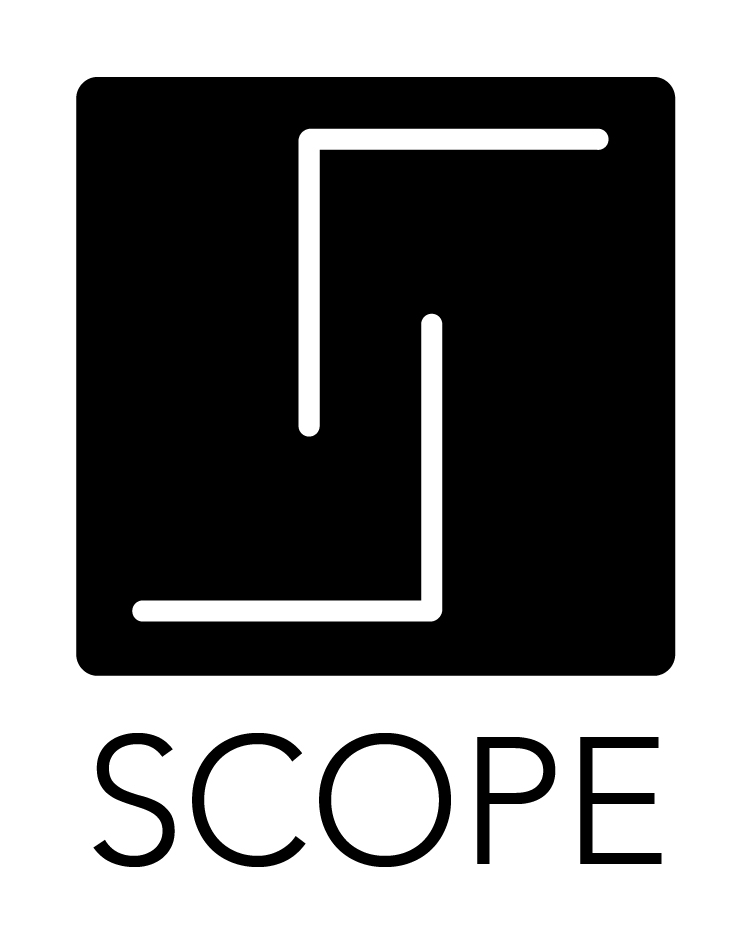
Anything else you’d like to add?
We are working on a side project called Scope: A Conversation on Women in Production that is set to launch next week. A lot of the project revolves around bringing attention to the discrepancies in gender and diversity that exist in media production, from broadcast to sports, news, television, and advertising. We’ll be interviewing leading women from across industries on their experiences and insight, and welcome suggestions from the community and encourage anyone to get involved.

